
 Tension headaches, also known as stress headaches, are pain, pressure, or discomfort felt in and around the head, scalp, or neck. The mild to moderate pain is characterized by tightness in these areas and it’s often described as a clamp squeezing the skull or a tight band around the head. Tension headaches are the regarded as the most common types in adults and older teens.
Tension headaches, also known as stress headaches, are pain, pressure, or discomfort felt in and around the head, scalp, or neck. The mild to moderate pain is characterized by tightness in these areas and it’s often described as a clamp squeezing the skull or a tight band around the head. Tension headaches are the regarded as the most common types in adults and older teens.
Tension headaches causes are not well-understood but they may occur when neck and scalp muscles become tense, or contract. This tension or contraction may be due to stress, depression, head injury, or anxiety. Activities that cause the head to held in place for a long time without moving can cause a tension headache. Such activities include typing or other computer work, delicate work with the hands that requires concentration, and using a microscope for a long time. Also, sleeping with the neck in an abnormal position may also trigger a tension headache. Other triggers of tension headaches are inadequate rest, physical or emotional stress, binge drinking, eye strain, caffeine (too much or withdrawal), dental problems, excessive smoking, and fatigue or overexertion.
It is reported that up to 80% of adults in the U.S. have them from time to time. About 3% get chronic daily tension headaches. Women are twice as likely to develop them as men.
Signs and symptoms of tension headaches include the following:
There are two main types of tension headaches. They are the episodic and chronic types.
Episodic tension headaches occur less than 15 days a month for at least 3 months and it can last from 30 minutes to one week. Episodic tension headaches usually begin gradually, often in the middle of the day. Frequent episodic tension headaches may become chronic.
Chronic tension headaches occur more than 15 days a month for at least 3 months and it can last for hours and may be continuous. They are considered chronic.
Though one’s head is hurtful, tension headaches don’t usually prevent one from one’s daily activities, and they don’t affect one’s sight, balance, or strength.
If a patient has chronic headaches, physical and neurological tests may be carried out by a doctor to try and identify the type and cause of the headache using the following approaches:
Pain description: providing an adequate description of the pain can help a doctor to accurately diagnose the headache. So, an adequate description of the pain given by the patient should include the following details:
Characteristics. Is the pain constant and dull? Sharp or throbbing? Pulsating or not?
Severity. Is the pain mild, moderate or severe? Does it keep you from working? Do the headaches prevent you from sleeping or wake you from sleep?
Location. Is the pain widespread all over the head, on one side only, or just on the forehead or behind the eyes?
Imaging tests: A doctor may order imaging tests to be carried out in the case of unusual or complicated headaches. This is done so as to rule out serious causes of head pain, such as brain tumor. The imaging tests carried out are:
Computerized tomography (CT): also called CT scan, uses a beam of computer-focused X-rays to provide a comprehensive and detailed view of the brain.
Magnetic resonance imaging (MRI): employs radio waves, a magnetic field and a computer to produce well-defined images of structures within the body.
Sinus X-rays: may also be performed to evaluate for congestion, blockage or other problems that may require corrections.
Other tests include blood tests to analyze blood chemistry and laboratory tests to check for any underlying conditions.
Tension headaches are best treated when the pain is still mild. So as soon as you experience any unusual pain in your head, you should visit a doctor. Some people try to treat the pain on their own using over-the-counter pain relievers, which eventually complicate the pain due to repeated use, and can actually cause another type of headache called overuse or rebound headaches.
Also learning to manage tension headaches at home is important as it can help to improve on the treatment plan and can also help provide additional information to the doctor during medical check-ups for better treatment plan. Ways of managing tension headaches at home include:
There are various medications, prescriptions and over the counter (OTC) drugs, that can be taken to reduce the pain of tension headaches. These are called acute medications and they include:
Pain relievers: The first line of treatment for reducing the headache pain is simple over-the- counter, OTC, pain relievers. Examples are ibuprofen, aspirin and naproxen. Prescription medications that can be taken include indomethacin, ketorolac, and naproxen.
Combination medications: Caffeine or a sedative drug is usually combined with aspirin or acetaminophen or both in a single combination therapy. Combination drugs may prove to be more effective than a medication containing only one drug component.
Triptans and narcotics: a triptan is capable of effectively relieving both migraines and episodic tension headaches for people who have both. Narcotics, because of them being addictive and their side effects, are rarely being used.
Doctors may also prescribe medications to help reduce the occurrence and intensity of attacks, particularly if one has chronic headaches that are not alleviated by simple medications and other therapies. These medications are called preventive medications and they include:
Anticonvulsants and muscle relaxants: these can help prevent tension headaches. Example is topiramate (Topamax).
Tricyclic antidepressants: these are the most commonly used medications to prevent tension headaches. Examples include amitriptyline and protriptyline. They have side effects such as constipation, drowsiness and dry mouth.
Other antidepressants: Evidence have been reported that antidepressants such as venlafaxine (Effexor XR) and mirtazapine (Remeron) are also effective preventive medications.
Preventive medications may take time to exert their effects, usually several weeks or more. This is specifically emphasized, so the patient doesn’t get frustrated if after they begin the drugs and don’t see any immediate improvements. The doctor monitors the progress of the treatment to see how the preventive medication works. During this period, continued use of pain relievers may interfere with the actions of the preventive medications.
Other alternative ways that may help provide relief from tension headaches include nontraditional therapies such as acupuncture- the use of extremely thin, disposable needles that cause little pain to bring about temporary relief from chronic headache pain. Massage can also be a helpful way to alleviate stress and relieve tension. Particularly effective for relieving tight, tensed up muscles in the neck, shoulders and back of the head, it may relieve one from headache pain. Deep breathing, behavior therapies and biofeedback can also help cope with tension headaches.
LEARN MORE ABOUT ONGOING CLINICAL STUDIES SPONSORED BY R3 STEM CELL HERE.
Brian J. Hall; John C. Hall. “Infectious diseases in the skin”. Sauer’s Manual of Skin Diseases. Lippincott Williams & Wilkins, 2010. p. 232.
Brand Ambassador Gallery
Register Now For Free Webinar: Avoid Surgery With Stem Cell Therapy

R3 Stem Cell Master Class
Learn everything you need to know about the ever expanding field of regenerative medicine in this 8 part series that includes over four hours of entertaining content!

R3 Stem Cell International

Free Stem Cell Consultation
R3 Stem Cell offers a no cost consultation to see if you or a loved one is a candidate for regenerative cell therapies including cytokines, growth factors, exosomes, and stem …

Provider
Partnership
The R3 Partnership Program offers providers an all-in-one regenerative practice program including marketing, consultations and booked procedures!
Success Stories
*Outcomes will vary between individuals. No claims are being made with regenerative therapies. The FDA considers stem cell therapy experimental. See our THERAPY COMMITMENT HERE.
The USA Stem Cell Leader Offers Procedures In 7 Countries Including

United States

Mexico

Philippines

South Africa

Pakistan

India

Turkey
Call to schedule your free consultation at over 70 centers world!
R3 Stem Cell is a global leader in regenerative medicine, offering advanced stem cell and exosome therapies through Centers of Excellence in over 45 locations across 7 countries. Our mission is to provide first-rate, customized regenerative treatments, including stem cells, exosomes, PRP, vitamins, and peptides, to help patients achieve a better quality of life. With more than 26,000 procedures performed and an 85% patient satisfaction rate, our experienced, compassionate providers are committed to delivering safe, effective care. All therapies are nonsteroidal, outpatient procedures designed to harness the body’s natural repair mechanisms and support tissue regeneration. Individual results may vary, and only your medical professional can explain all the risks and potential benefits of any therapy based on your unique circumstances.
Stem cell therapy is considered experimental and is regulated by the U.S. Food and Drug Administration (FDA), but it is not FDA-approved. R3 Stem Cell does not offer stem cell therapy as a cure for any medical condition. No statements made on this site have been evaluated or approved by the FDA. This site does not provide medical advice. All content is for informational purposes only and is not a substitute for professional medical consultation, diagnosis, or treatment. Reliance on any information provided by R3 Stem Cell, its employees, others appearing on this website at the invitation of R3 Stem Cell, or other visitors to the website is solely at your own risk. R3 Stem Cell does not recommend or endorse any specific tests, products, procedures, opinions, or other information that may be mentioned on this website. R3 Stem Cell is not responsible for the outcome of your procedure. The FDA considers stem cell therapy experimental at this point.
R3 has treatment centers in 8 countries. In the USA, no claims are made for treating any specific condition. Those are meant for R3 International treatment.
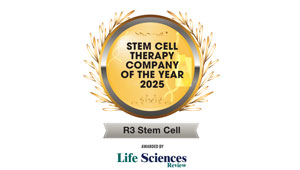




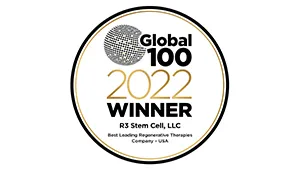

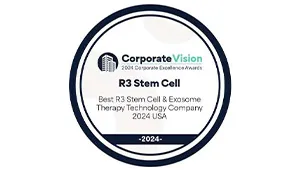
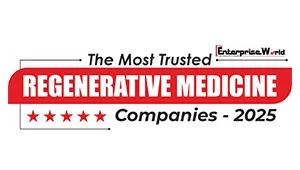
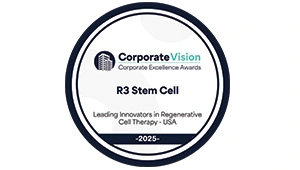
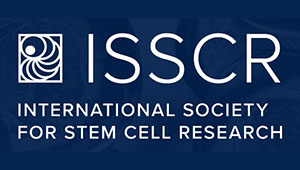
CALIFORNIA
FLORIDA
GEORGIA
HAWAII
IDAHO
ILLINOIS
INDIANA
IOWA
KANSAS
KENTUCKY
LOUISIANA
MARYLAND
MASSACHUSETTS
MICHIGAN
MINNESOTA
MISSISSIPPI
MISSOURI
NEBRASKA
NEW JERSEY
NEW YORK
NEW MEXICO
NEVADA
NORTH CAROLINA
OHIO
OKLAHOMA
OREGON
PENNSYLVANIA
RHODE ISLAND
SOUTH CAROLINA
SOUTH DAKOTA
TENNESSEE
Disclaimer: The city links above provide general information on stem cell treatment. To find an R3 Stem Cell clinic near you click here
The USA stem cell leader offers procedures in
8 Countries including:
Copyright © 2017-2026 R3 Stem Cell. All Rights Reserved.